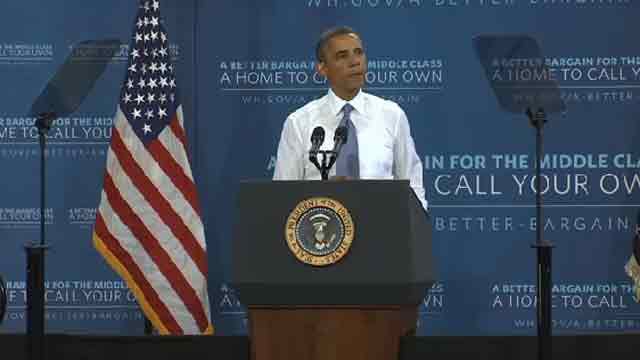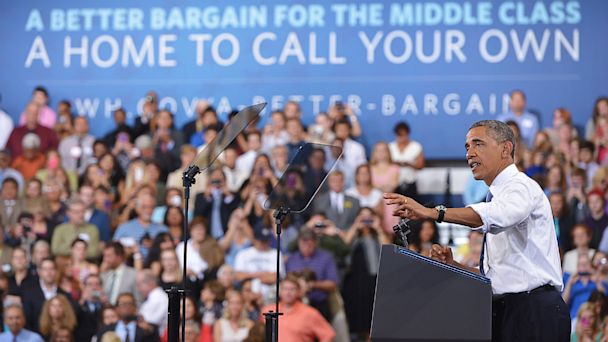Peter Baker, Bruce Katz and Ned Lamont are our guests this week.
Show produced by Katherine Caperton.
Conversations recorded at the Aspen Ideas Festival, Aspen, Colorado
Original Air Date: August 10, 2013 on SiriusXM “POTUS” Channel 124.
PoliOptics airs regularly on POTUS on Saturdays at 6 am, 12 noon and 6 pm.
Follow us on Twitter @Polioptics
Listen to the show by clicking on the bar above.
Show also available for download on Apple iTunes by clicking here
 This week was going to be our final installment of conversations from the Aspen Ideas Festival – and we’ll get to that later in the show, but then – BOOM – some big stuff happened on the PoliOptics front so here I am, back in the studio, to gather some fresh perspective.
This week was going to be our final installment of conversations from the Aspen Ideas Festival – and we’ll get to that later in the show, but then – BOOM – some big stuff happened on the PoliOptics front so here I am, back in the studio, to gather some fresh perspective.
First of all, did anyone see that speech President Obama gave in Phoenix this week highlighting the housing rebound and pitching mortgage reform? Did you happen to notice the tight shot and the cutaway shot? It took five years, but the White House seems finally to be embracing the type of technical event design and message conveyance that we started to use during the Clinton Years and was brought to a new level under President George W. Bush.

The “tight shot” from Phoenix

The “medium shot” from Phoenix

The “cutaway shot” from Phoenix

The “buffer shot” from Phoenix

The “walk-out shot” from Phoenix
From every angle, an elegant presentation all around. And more importantly, from just about every angle, the design of the site helps the president convey to news consumers exactly why he came to Phoenix in the first place: that his policies represent “A Better Bargain For The Middle Class.” You don’t have to watch the speech in its entirety (if you even had the chance) and you aren’t reliant on television news packagers to devote a sliver of their stories to the message (if they even covered it substantively) or newspaper reporters to focus on the housing issue rather than the rapidly deteriorating relationship between the U.S. and Russia (which dominated this week’s coverage). All you had to do was see one picture of the event to know what was going on — and take note of the handy Website URL — WhiteHouse.gov/A-Better-Bargain — to go get more information.
Also, for PoliOpticians like me, this week’s event offered a nod to the future Obama Presidential Library. This event won’t, can’t, look like any other. The message and visual was tailored to the day, place and topic. Future generations who might wonder about the Obama Administration’s efforts to assist American homeowners with grasping for, and holding onto, their dreams, need look no further than this event in August 2013 in Phoenix, Arizona for photographic evidence of the president’s commitment. I realize photographic evidence is, by its nature, superficial, but it’s the most widely disseminated and most easily understood kind.
* * *

So before we moved to the rest of the show that originated from Aspen, we wanted to reach out to Peter Baker of the New York Times, a perfect guy to give us some inside perspective on both of the week’s major newsmaking events. Peter was, for 20 years, a leading reporter at the Washington Post, a lot of it on the White House beat, but also had an extended tour as the Post‘s Moscow Bureau Chief. Peter has a new book coming out in October – Days of Fire: Bush and Cheney in the White House – and, while we’ll have him back on the show closer to the publication date to probe that story in more depth, we also wanted to get from him a preview of what’s to come.
* * *
Once we allowed Peter to resume his vacation, it was back to Aspen, one more time.
With the Detroit bankruptcy on many minds, it isgreat time to check to hear from Bruce Katz of the Brookings Institution. Bruce’s new book, with Jennifer Bradley – The Metropolitan Revolution: How Cities and Metros are Fixing Our Broken Politics and Fragile Economy – shows that Katz is one of the foremost thinkers on how America really ticks outside of Washington and should provide a ray of hope for the future.
Bruce is one of those guys who might have been written about in Malcolm Gladwell’s Outliers. If you spend enough time on one topic or area of expertise — as Bruce has with America’s metropolitan areas, able to recite the names of streets and squares in each of them — there aren’t many who can keep up. On the fascinating topic of where we live and how to make it better, there’s no one better to listen to.
As Newark Mayor Cory Booker said:
The Metropolitan Revolution upends conventional wisdom and makes the case for how our cities and metros are leading American change and progress: they are transforming our national economy, political conversation, and collective destiny from the bottom up like never before. A must-read for anyone working toward a brighter future for our cities and our nation.”

While I was watching Bruce talk in Aspen, I spied a familiar face: Ned Lamont. Ned was the Democratic nominee for Senate in 2006 in my then-home state of Connecticut. Lamont lined up a lot of support in the state, including that of the renowned senior senator, Chris Dodd, now the Chairman and CEO of the Motion Picture Association of America. He seemed destined to win the race with a campaign built around a message against the War in Iraq, but was upended in the final weeks by Joe Lieberman running as an independent.
I always wondered how Lamont thought about that race and how he’s been filling his time since. Our conversation with Ned, the founder and chairman of Lamont Digital Systems, who is very much still engaged in issues related to technology and education, wraps up Episode 114 of PoliOptics. For those who weren’t inundated with ads in the Hartford media market in 2006 here, as a companion to today’s show, is a taste of the action.
[youtube]VfUL5oamelg[/youtube]


Leave a Reply